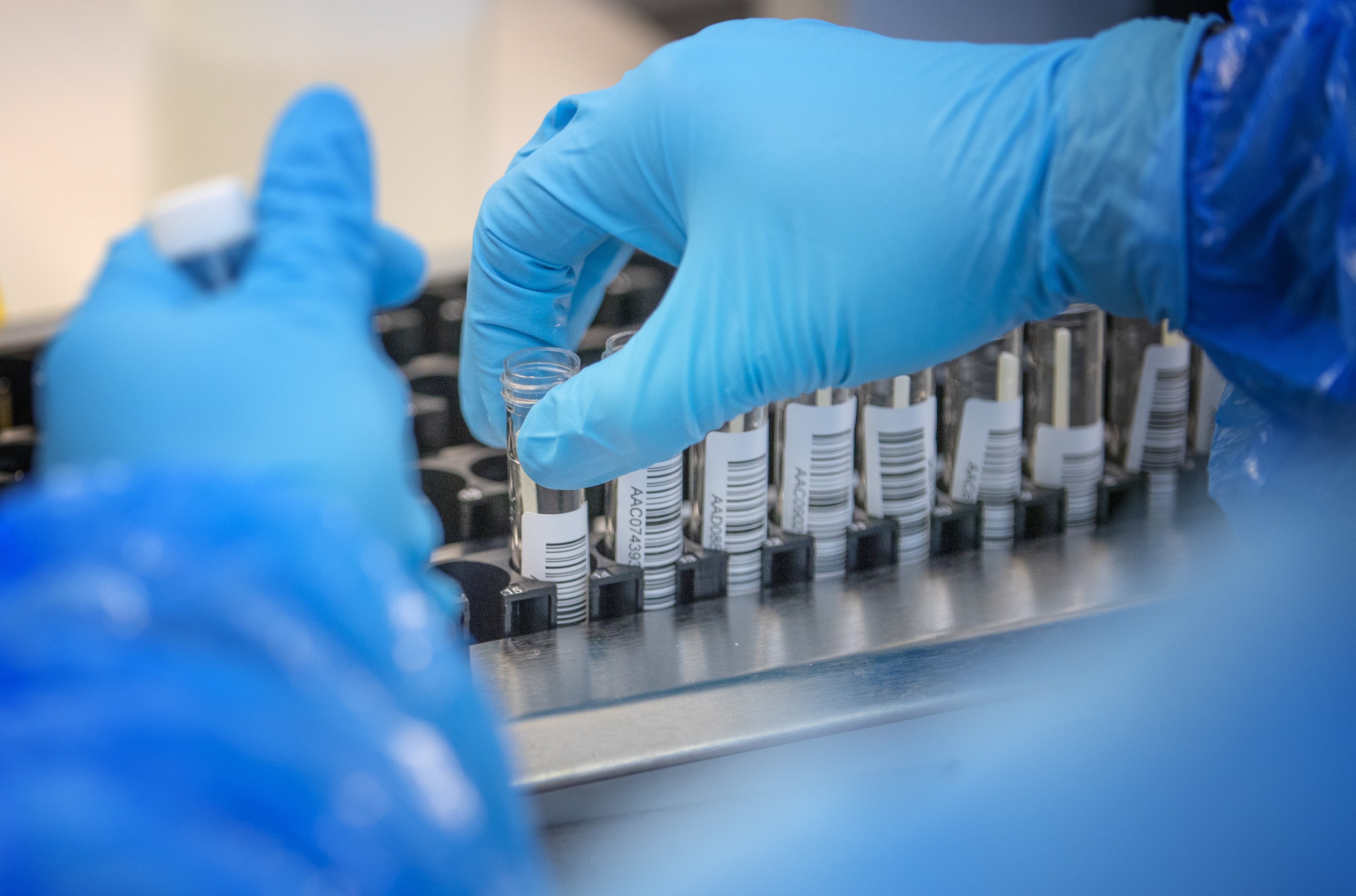Government planning to drop Covid testing scheme aimed at vulnerable people
Exclusive: Experts raise concerns over plans to wind down scheme used to detect virus in NHS, social care, prisons and schools

Your support helps us to tell the story
From reproductive rights to climate change to Big Tech, The Independent is on the ground when the story is developing. Whether it's investigating the financials of Elon Musk's pro-Trump PAC or producing our latest documentary, 'The A Word', which shines a light on the American women fighting for reproductive rights, we know how important it is to parse out the facts from the messaging.
At such a critical moment in US history, we need reporters on the ground. Your donation allows us to keep sending journalists to speak to both sides of the story.
The Independent is trusted by Americans across the entire political spectrum. And unlike many other quality news outlets, we choose not to lock Americans out of our reporting and analysis with paywalls. We believe quality journalism should be available to everyone, paid for by those who can afford it.
Your support makes all the difference.A major testing programme used to quickly detect Covid-19 in the NHS, prisons, schools and social care may be dropped next year, The Independent has learned.
Multiple senior sources have told The Independent the government is now seeking to wind down the national programme for loop-mediated isothermal amplification (Lamp) tests, from March 2022.
Lamp tests are much quicker than polymerase chain reaction (PCR) tests, can be turned around within an hour, and are mainly used to test people who do not have symptoms of Covid-19. The test can also be done directly on saliva so there is no need for swabbing, unlike PCR tests, and are thought to be more accurate than lateral flows.
Experts have also said Lamp tests can be used to track new Covid-19 variant outbreaks, such as omicron.
The programme to roll out Lamp testing has been aimed at prisons, schools, adult social care services and NHS hospitals and is managed by NHS Test and Trace, which currently sits under the UK Health Security Agency (UKHSA).
Officials at the Department for Health and Social Care (DHSC) this weekindicated national support for the programme would not extend into the new financial year, according to sources.
One national source said the decision is likely being driven by funding priorities and implications of the recent spending review.
They said cutting the scheme would particularly impact prisons and people with disabilities, adding: “Lamp isn’t huge in terms of numbers of tests carried out currently, as its not been widely rolled out yet, but the impact will be on vulnerable people and so this raises questions about inequality.
“Discussions being had about cutting funding for Lamp testing will absolutely hurt the most vulnerable in our society. People who suffer from disabilities and cannot have invasive testing like PCRs can only use this type of test. It could impact testing in special needs schools, in particular.”
An official with knowledge of testing in the prison system said: “It’s hard to explain how difficult and challenging it is to build a testing programme within a prison or other secure environment. Lamp is a key route for this programme, and it has benefits because it’s less physically invasive and quick.
“Exactly what’s needed for an environment where infections spread like wildfire and inmate trust is integral and easily lost.”
One expert told The Independent: “Through a PCR test you can make an ‘informed guess’ over whether a specimen is likely to be the new omicron variant. However, to confirm it, you have to go through further sequencing which takes more time but can be done from the original sample.
"One of the advantages of Lamp testing, as opposed to lateral flow, is that you can do sequencing directly from the original sample that was submitted for saliva testing and so there is no requirement to go back to people and get another sample, with all the delays. Those delays are problematic because if it’s a delay of several days and someone is infectious, they could have gone on to pass it to others.
“So, if you absolutely wanted to nail it as omicron and stop transmission, as UKHSA is trying to do at the moment, you need quick processes which are generally not achieved with lateral flow tests.”
Another testing expert echoed this, saying: “The benefits of Lamp are the quick turn-around. There are very minor prep stages and then as little as 25 minutes on the detection instrument as it does not require ‘thermocycling’ to achieve amplification like PCR does.”
They added that reagents, a substance that is added during the testing process to cause a chemical reaction for Lamp tests, can be ten times cheaper than the ones for PCR tests.
Sources told The Independent that for NHS hospitals, the aim was to carry out tens of thousands of tests a week – up to 20,000 and 30,000 in some regions. The “superlab” in Southampton is the largest testing centre for Lamp specimens and may also be decommissioned by the DHSC come March.
One source told The Independent: “The constant conversations about cutting testing capacity could not be further from what’s helpful at the moment.
"It’s as though there’s a determination to impose a deadline on the virus, rather than accepting that the course of the virus dictates the deadline.”
"All forms of testing are necessary at scale given their respective benefits. Any link in the chain of society’s contacts from healthcare staff visiting care homes, to prison visits, to schools trying to roll out jabs amid breakouts can only be broken with testing.”
The DHSC was approached for comment.
Join our commenting forum
Join thought-provoking conversations, follow other Independent readers and see their replies
Comments